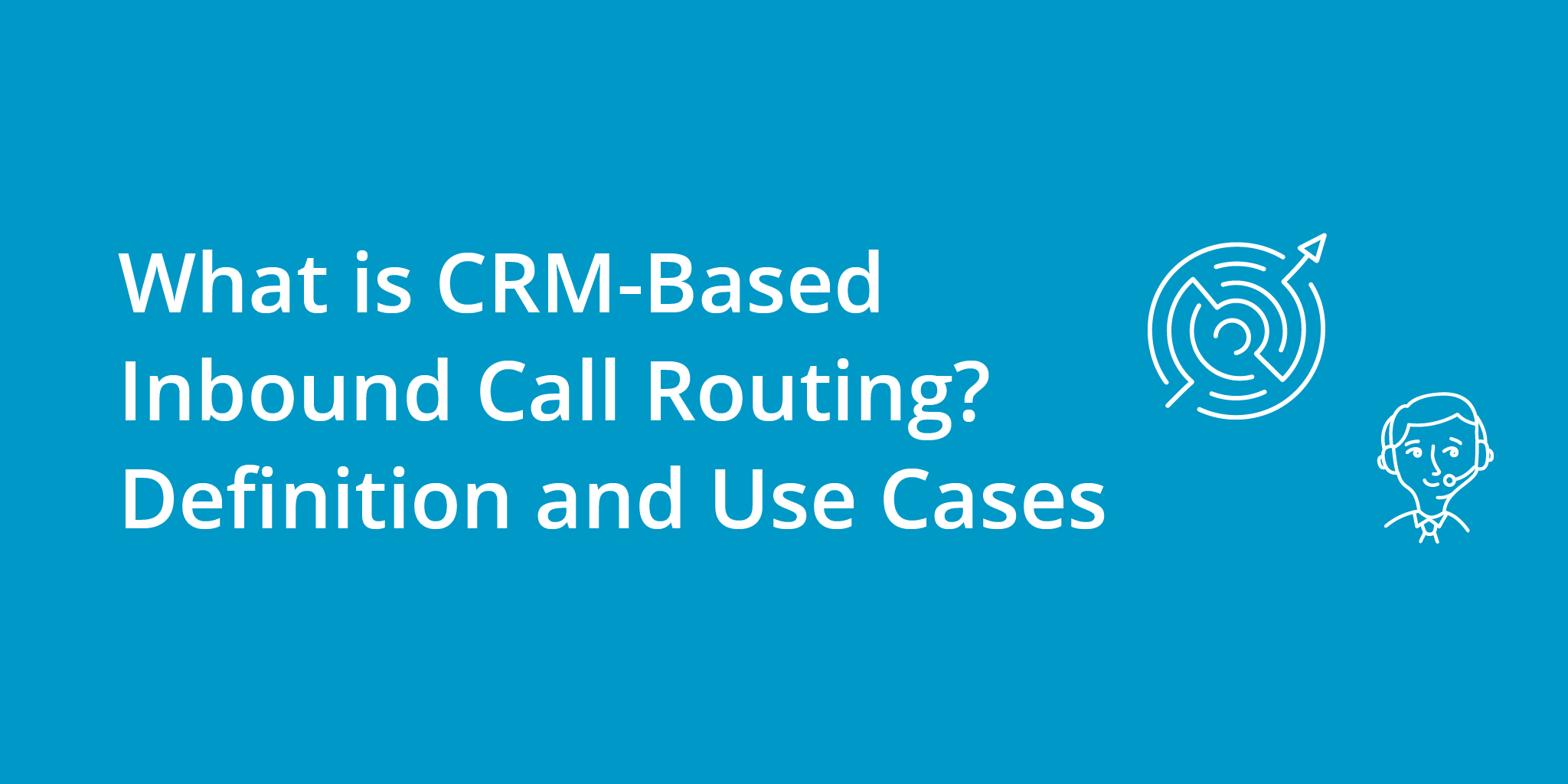In today’s business landscape, customer service is one of the most critical components of B2B sales. Companies must provide top-notch customer support to maintain their competitive edge and retain customers. One of the key tools that B2B sales teams can use to enhance customer support is CRM-based ininbound call routing
In this article, we’ll explore what CRM-based inbound cacall routings, and use cases for businesses to adopt this software.
- What is CRM-Based Inbound Call Routing?
- Use Cases for CRM-Based Inbound Call Routing in B2B Sales
- What Kinds of Businesses Will Benefit From CRM-Based Inbound Call Routing?
- 5 Advantages of CRM-Based Inbound Call Routing for B2B Sales Teams
What is CRM-Based Inbound Call Routing?
CRM-based inbound call routing, also known as Automatic Call Distribution (ACD), is a software system that automatically routes incoming calls to the most appropriate agent or department based on customer data stored in a CRM system. The system uses advanced algorithms to match the customer’s inquiry with the available agents’ skills, availability, and historical performance to provide a personalized and efficient customer experience.
Inbound call routing systems use a set of routing rules to direct incoming calls based on various factors, such as the type of inquiry, the customer’s location, and the agent’s skill set. This ensures that customers are connected to the most qualified agent to handle their inquiry, reducing wait times and improving the overall customer experience.
Additionally, phone systems that offer CRM-based inbound routing generally offer contact center tools like call queuing, IVRs, and call monitoring features, allowing supervisors to monitor and manage call volume and agent performance in real time.

Use Cases for CRM-Based Inbound Call Routing in B2B Sales
CRM-based inbound call routing is a powerful tool that can help businesses streamline their customer service operations, improve agent performance, and enhance the customer experience. Here are five use cases for CRM-based inbound call routing:
- Customer Support: A company can use CRM-based inbound call routing to ensure that customers are directed to the appropriate agent based on their previous interactions with the company, their preferred language, and the nature of their inquiry. This ensures that customers receive timely and personalized support, which can improve customer satisfaction and loyalty. For example, if a valued customer with a high deal value calls into support, you may want to route them to a premiere support agent to handle their inquiry successfully.
- Sales: CRM-based inbound call routing can also be used to intelligently route sales inquiries to the most qualified sales representatives based on their expertise, experience, and performance metrics. It can also route calls from existing leads to their contact owner. This can improve the chances of closing a sale, increase revenue, and enhance the customer’s buying experience.
- Technical Support: In cases where customers require technical assistance, CRM-based inbound call routing can route the call to the agent with the appropriate technical skills, reducing the need for call transfers and minimizing wait times. This can lead to faster resolution of technical issues and improved customer satisfaction.
- Appointment Scheduling: CRM-based inbound call routing can be used to schedule appointments with the most appropriate agent or department based on the customer’s (or the agent’s) availability, location, and preferences. This can improve the efficiency of the scheduling process and enhance the customer’s experience. For example, if a person calls into your mortgage office asking about a loan, it’s important to route their call to a loan officer that is licensed in the state that the customer lives in.
- Billing and Payments: Another use case for CRM-based inbound call routing is using it for directing customers with billing and payment inquiries to the agent or department that can assist them with their specific needs. This can reduce the need for customer callbacks and multiple identity verification attempts, and increase customer satisfaction as a whole.
What Kinds of Businesses Will Benefit From CRM-Based Inbound Call Routing?
The short answer? Any business that receives a high volume of incoming calls and values customer service would benefit from an automated inbound call routing system.
For example, businesses in industries such as healthcare, telecommunications, finance, and retail often have many incoming calls from customers with various inquiries. Implementing an automated inbound call routing system can help these businesses improve customer satisfaction, reduce wait times, and increase operational efficiency.
Additionally, businesses with a geographically dispersed workforce or multiple office locations can benefit from an automated inbound call routing system. This system can ensure that calls are directed to the most appropriate agent, regardless of their location, and enable businesses to provide a consistent level of service across all locations.
Finally, businesses that prioritize data collection and analysis can benefit from an automated inbound call routing system. The system can provide detailed data about call volume, wait times, and agent performance, allowing businesses to identify areas for improvement and make data-driven decisions to enhance their customer service operations.

5 Advantages of CRM-Based Inbound Call Routing for B2B Sales Teams
As mentioned above, CRM-based inbound call routing is a critical tool for B2B sales teams, providing several advantages that enhance the overall customer experience, improve agent performance, increase efficiency, provide better data collection and analysis, and offer a competitive advantage. Let’s delve into each of these advantages in more detail.
- Improved Customer Experience: CRM-based inbound call routing systems ensure that customers are directed to the most appropriate agent for their inquiry, improving their experience and providing personalized support. With this system, customers do not have to repeat their inquiry or speak to multiple agents, reducing frustration and wait times.
- Enhanced Agent Performance: These call routing systems provide agents with the necessary information and context to handle customer inquiries effectively. Agents receive detailed customer information and past interactions from their CRM in the dialer, enabling them to provide smoother, more personalized support and reducing customer frustration.
- Operational Efficiency: CRM-based inbound call routing systems improve operational efficiency by directing calls to the most appropriate agent, reducing call transfers and wait times. This ensures that customers receive quick and efficient support, improving customer satisfaction, and reducing costs.
- Better Data Collection and Analysis: CRM-based inbound call routing systems provide detailed data about customer interactions, agent performance, and call metrics. This data can be used to identify patterns and trends, analyze call volume and wait times, and improve overall customer support operations.
- Competitive Advantage: By providing personalized support, improving customer satisfaction, and enhancing operational efficiency, CRM-based inbound call routing systems, along with other contact center efficiency tools, give businesses a competitive advantage in the marketplace. After all, no one (especially a paying customer) likes sitting on hold or waiting forever to talk to someone about an issue they’re having.
Want to try out a CRM-based inbound routing solution today? Get a free, 7-day trial of Kixie (no credit card needed to get started) and try out all of our inbound and outbound contact center features.



